The Supreme Court on Thursday upheld the heart of President Obama’s health care law, ruling that the federal government can compel Americans to buy health insurance and striking a new balance for the scope of federal authority in the 21st century.
The complex 5-4 decision is a major legal boost to Mr. Obama and settles more than two years of court battles, though it only inflamed the political fight over the largest expansion in 40 years of the country’s social safety-net programs.
The ruling lets Mr. Obama continue to push the law toward full implementation in 2014, even as Republicans said they will redouble their efforts to repeal it in Congress and to take the issue to voters in November’s elections.
At its root, Chief Justice John G. Roberts Jr.’s controlling opinion attempted a delicate constitutional balancing act: He said the Commerce and the Necessary and Proper clauses cannot be bent to compel Americans to buy insurance but is allowed under Congress’ tax and spending powers, which are broader, but are subject to the checks of the political system.
“The Affordable Care Act’s requirement that certain individuals pay a financial penalty for not obtaining health insurance may reasonably be characterized as a tax. Because the Constitution permits such a tax, it is not our role to forbid it, or to pass upon its wisdom or fairness,” he wrote.
The court’s four Democrat-appointed justices all sided with the chief justice’s ruling, but wrote separately to say they would have allowed the individual mandate under the Commerce Clause, too.
Four justices dissented, saying in an opinion written by Justice Antonin Scalia that the court has granted nearly unlimited authority to Congress to control Americans’ lives.
“Whatever may be the conceptual limits upon the Commerce Clause and upon the power to tax and spend, they cannot be such as will enable the Federal Government to regulate all private conduct and to compel the states to function as administrators of federal programs,” Justice Scalia wrote.
They said they would have struck down not only the individual mandate, but the rest of the law as well, arguing that the other provisions could not have stood without the compulsion of forcing Americans to buy insurance.
The justices also upheld the law’s massive expansion of Medicaid, the federal-state partnership program that provides health care to the poor. But in a 7-2 split, the justices said states that don’t want to expand their Medicaid rolls can’t be forced to forfeit all their existing Medicaid money.
Tax fight
The political fight ramped up throughout the day, as Republicans pounced on the court’s pronouncement that the penalty for not purchasing health coverage amounts to a tax, even though Mr. Obama repeatedly denied that while trying to muster political support for the law.
“The Supreme Court has spoken. This law is a tax. The bill was sold to the American people on a deception,” said Senate Minority Leader Mitch McConnell, Kentucky Republican, adding that his party will continue pushing to ax the law.
Mitt Romney, the presumptive Republican presidential nominee, also vowed to sign a repeal if he is elected in November.
House Majority Leader Eric I. Cantor, Virginia Republican, said the House will vote to repeal the health care law next month, delivering on GOP promises to try to repeal the rest of the law even if the court upheld it.
“The court’s decision brings into focus the choice the American people have about the direction of our country,” he said. “The president and his party believe in massive government intrusions that increase costs and take decisions away from patients.”
The House bill is unlikely to succeed. The Democrat-controlled Senate has rejected 30 other House attempts at full or partial repeal.
Law moves forward
Mr. Obama said that while he is willing to tweak the law to improve it, the court affirmed the goal of his law - to make sure that Americans have the means to pay for their health care.
“I know there will be a lot of discussion today about the politics of all this, about who won and who lost,” Mr. Obama said. “That’s how these things tend to be viewed here in Washington.
“But that discussion completely misses the point,” he said. “Whatever the politics, today’s decision was a victory for people all over this country.”
The law requires states to set up health care exchanges and offers federal subsidies so the poor and middle class can purchase insurance, and it expands Medicaid so more low-income families are eligible for government-run health care.
It expanded prescription-drug coverage for some beneficiaries under Medicare, the federal health care program for the nation’s seniors, and offered incentives for small businesses to provide insurance for their employees.
The law also requires insurers to cover pre-existing conditions and to allow parents to keep their children on their policies up to age 26 - and in exchange it requires most Americans to obtain coverage or pay a penalty. Health insurers said they needed the influx of young, mostly healthy people in order to cover the costs associated with expanded coverage.
Some states, particularly those under full Republican control, had been counting on the law to be overturned and had taken few strides toward setting up their exchanges.
Mandate upheld
All eyes have been on the court ever since the justices announced they would hear major constitutional challenges against the Affordable Care Act, after months of courtroom battles over the 2010 law.
The individual mandate to buy insurance or pay the penalty was at the heart of the struggle, marking the first time the federal government tried to require all Americans to buy a particular good or service.
While opponents said it violated individual freedom, the administration said that because everyone consumes health care at some point, government can control when they begin to pay for it.
The justices held a marathon three-day series of oral arguments in March and then retreated behind closed doors to deliberate and write their opinions.
The conflict gave the Supreme Court a chance to try to spell out the federal government’s relationship with states and individuals more clearly than ever before, indicating where the federal government’s powers to tax, to regulate interstate commerce and to enact laws “necessary and proper” to exercise other powers began and ended.
The Roberts opinion strikes a new balance, putting limits on Congress’ compulsory powers under the Commerce Clause but saying lawmakers retain wide authority under the taxing power.
Voters have been sharply polarized over the law since the beginning, and the court’s ruling is likely to dominate the presidential campaign as Mr. Obama tries to fend off Mr. Romney, who signed a pioneering health law as governor of Massachusetts.
Justice Ruth Bader Ginsburg’s concurring opinion cited that Massachusetts law as proving that an individual mandate would work in bringing down the number of uninsured people.
• Paige Winfield Cunningham can be reached at pcunningham@washingtontimes.com.



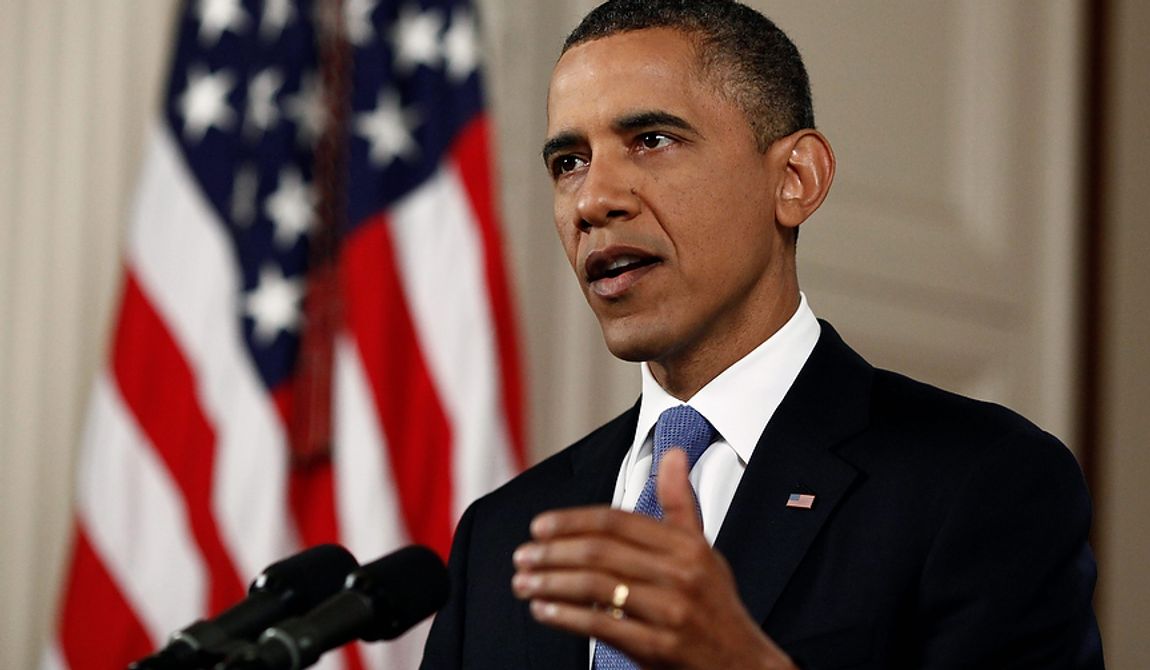
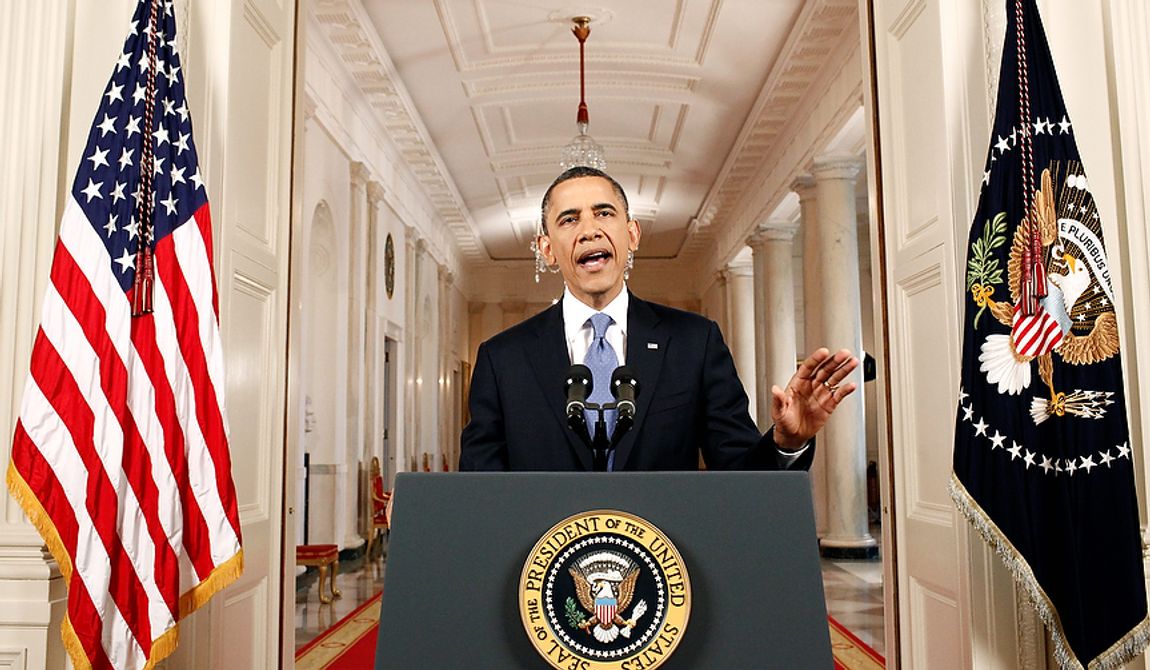
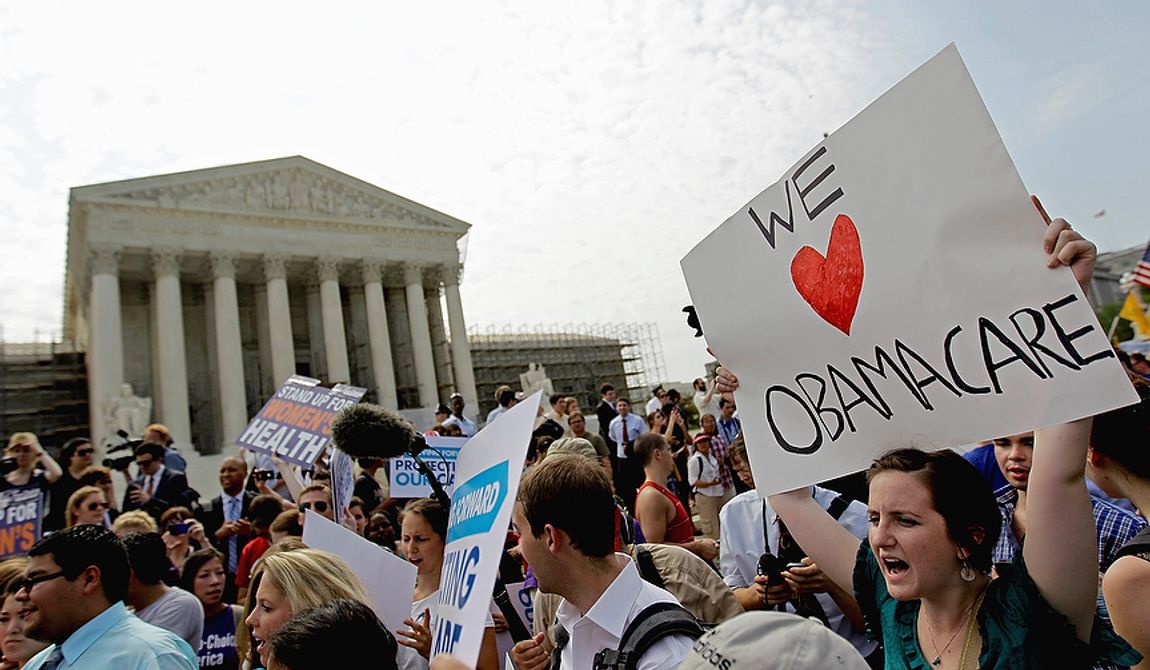
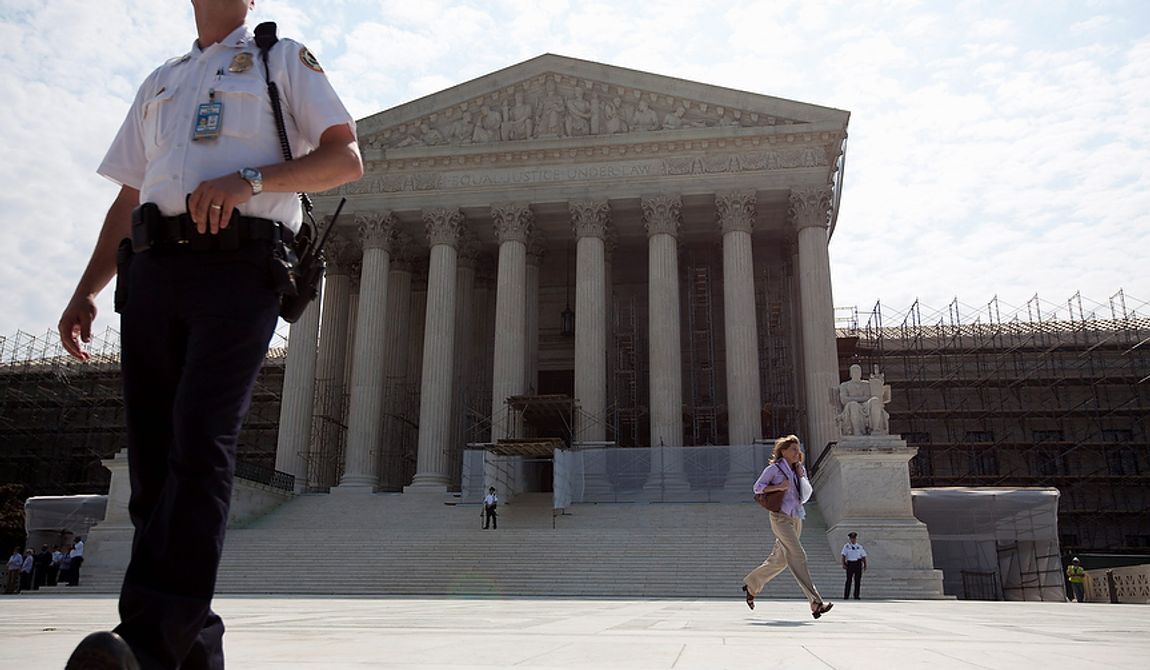
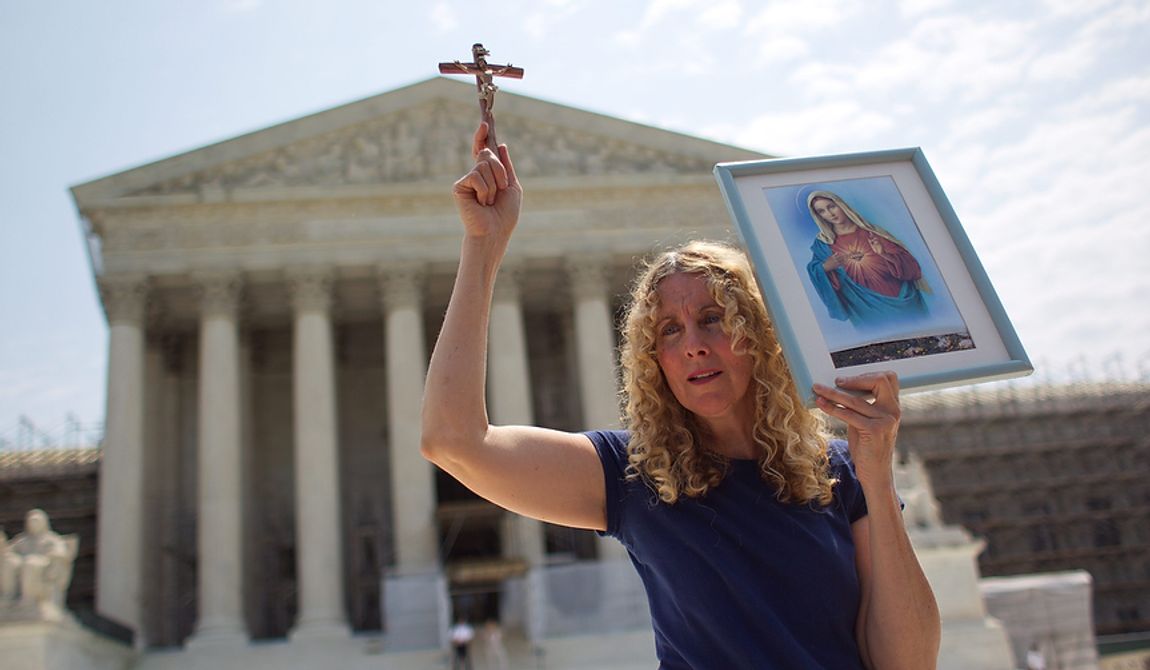
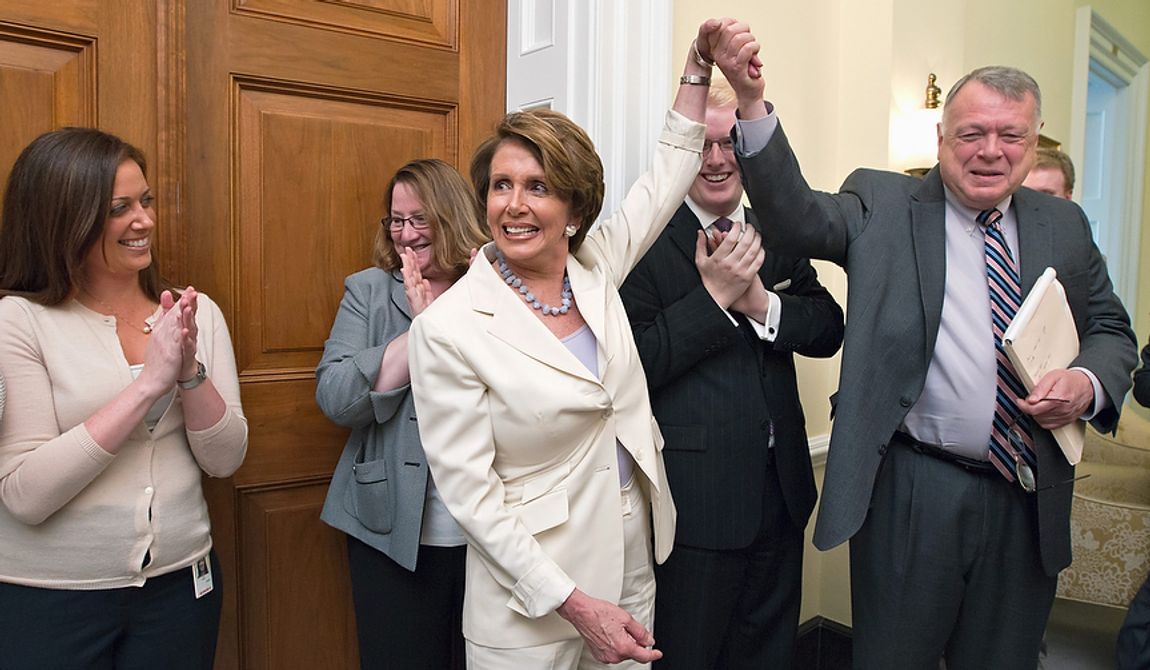
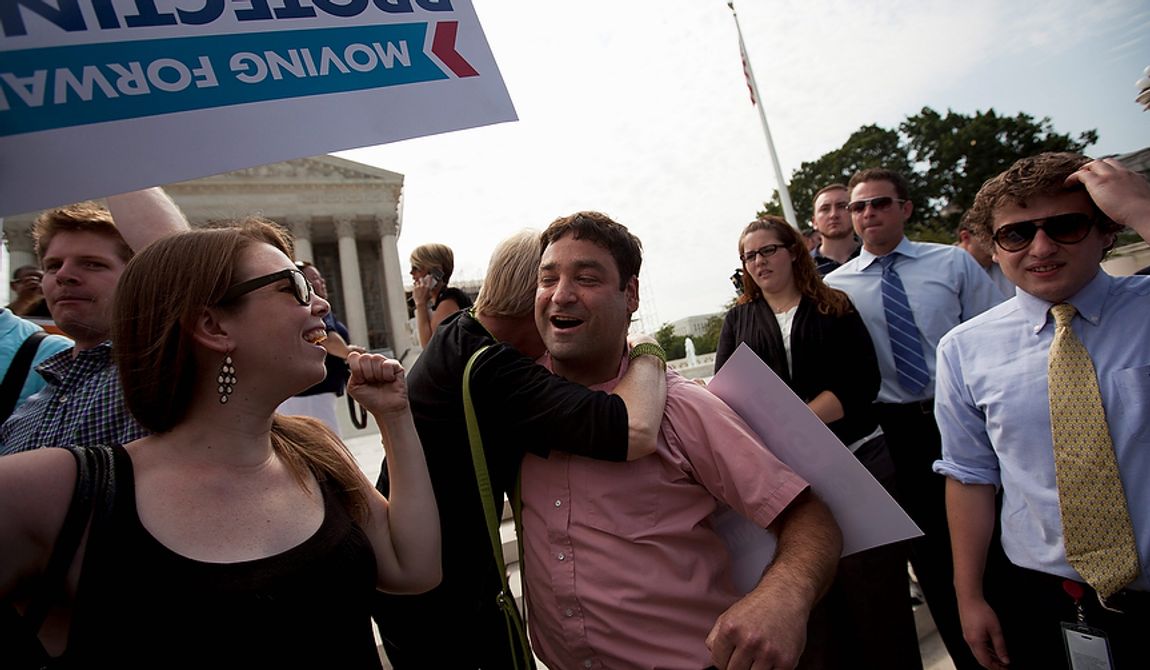
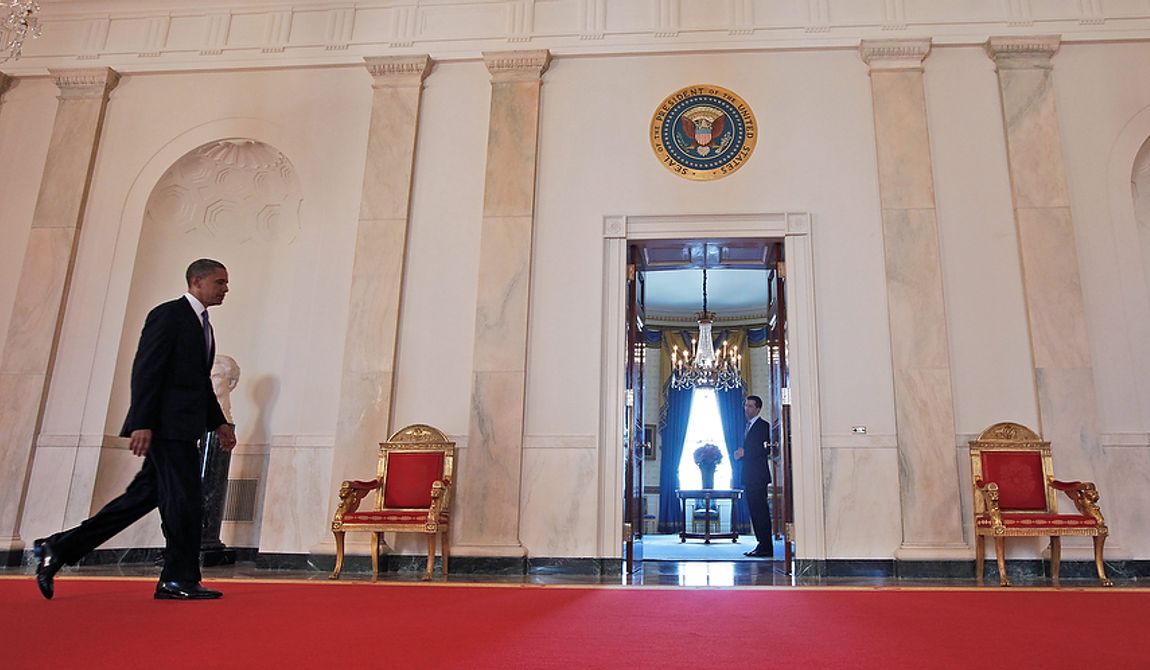
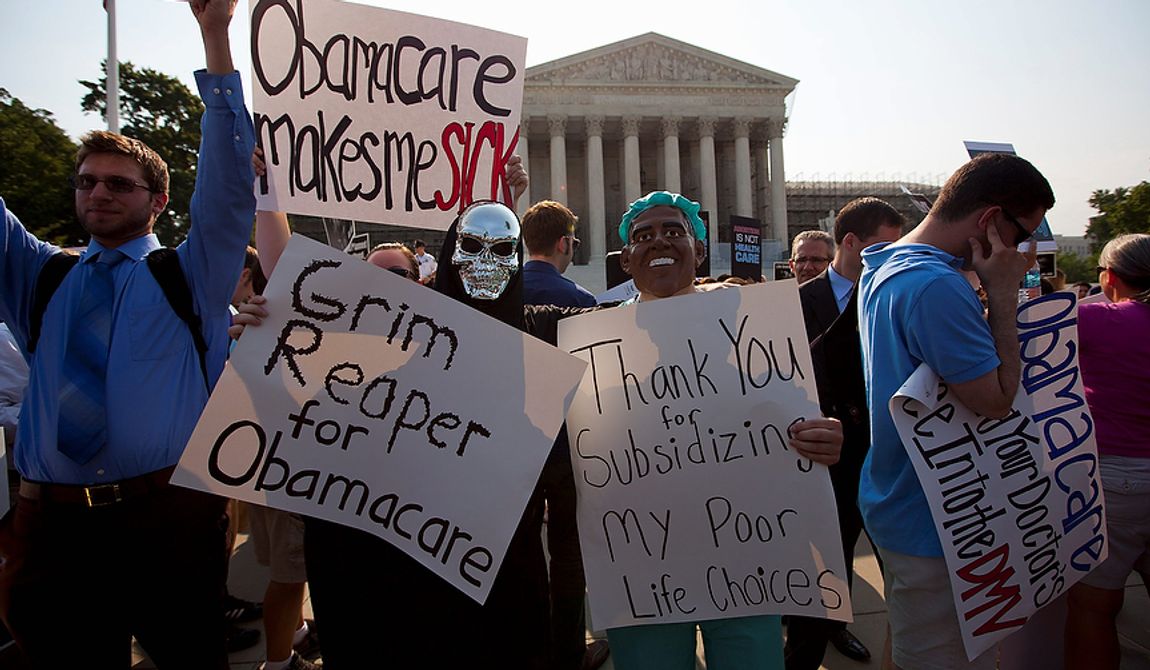
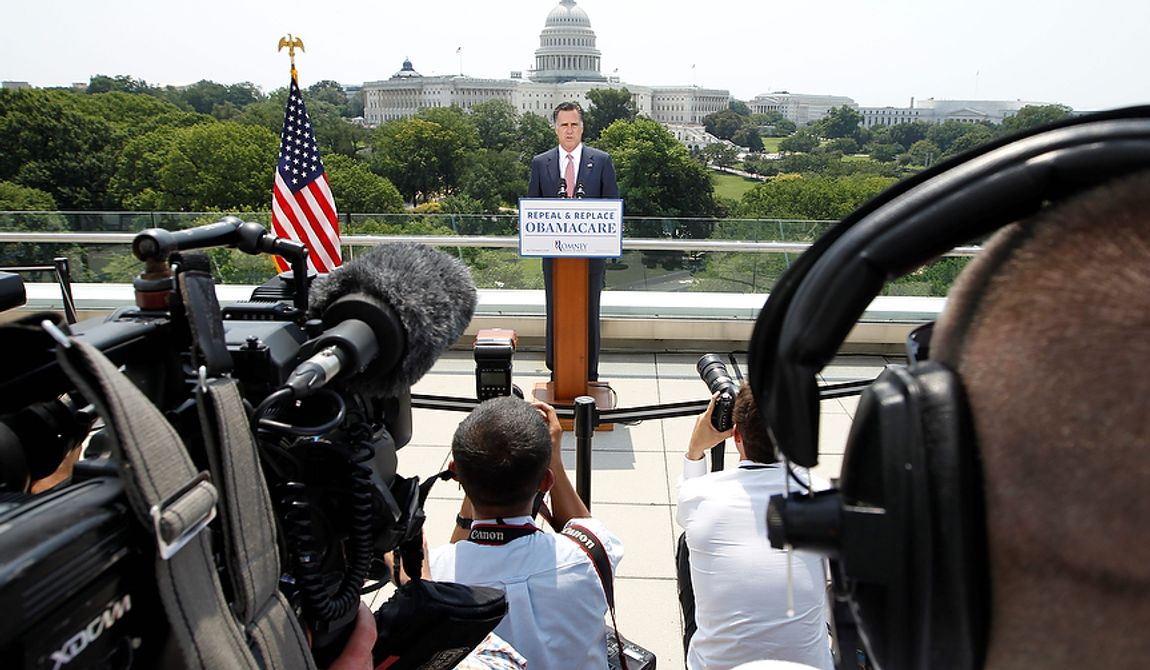
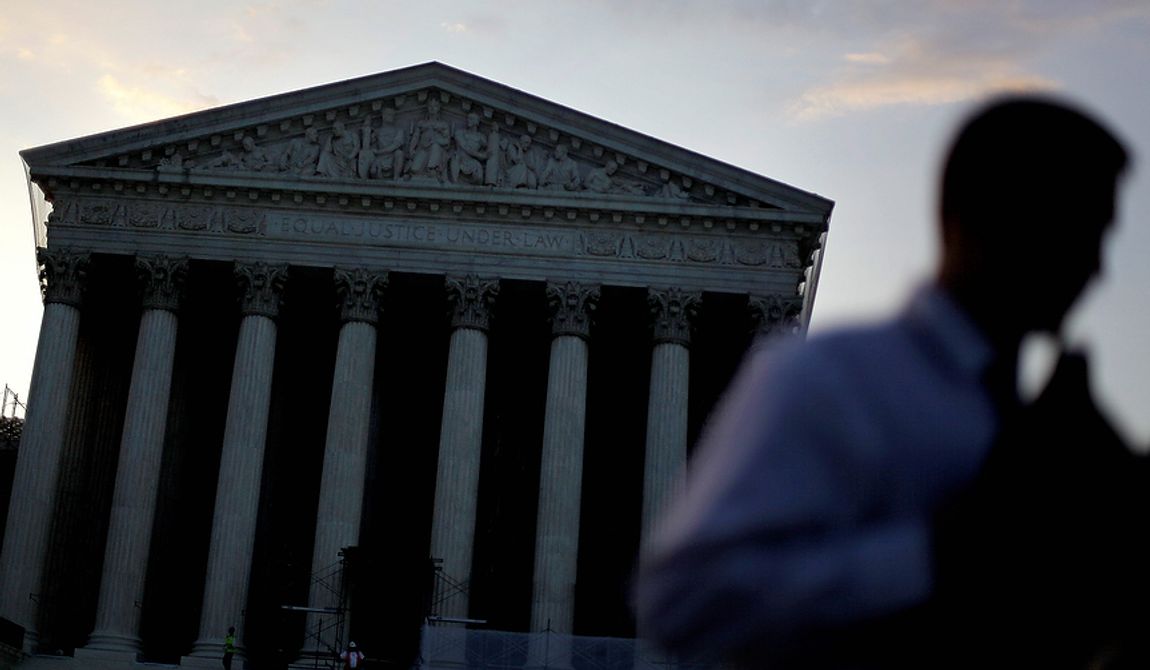
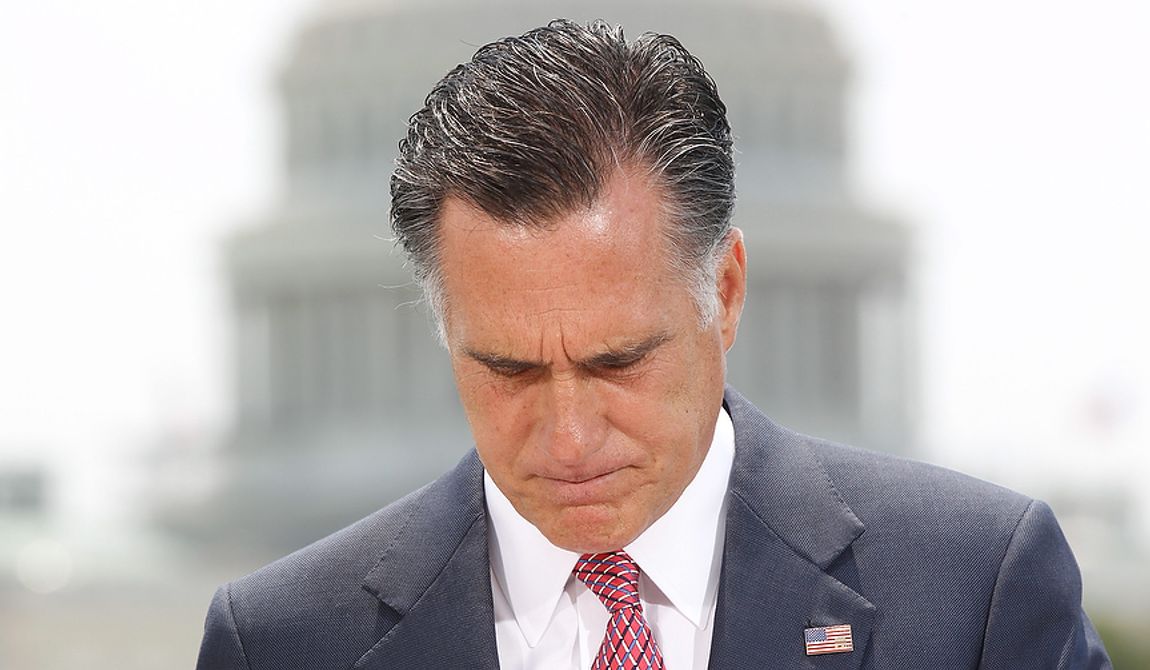
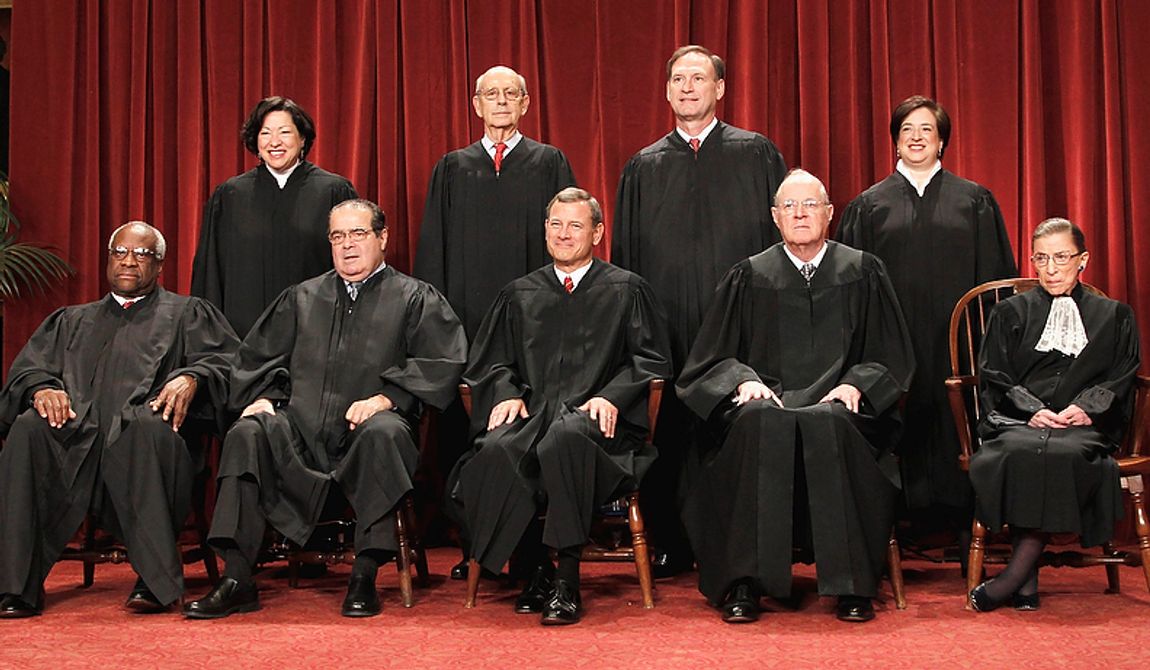
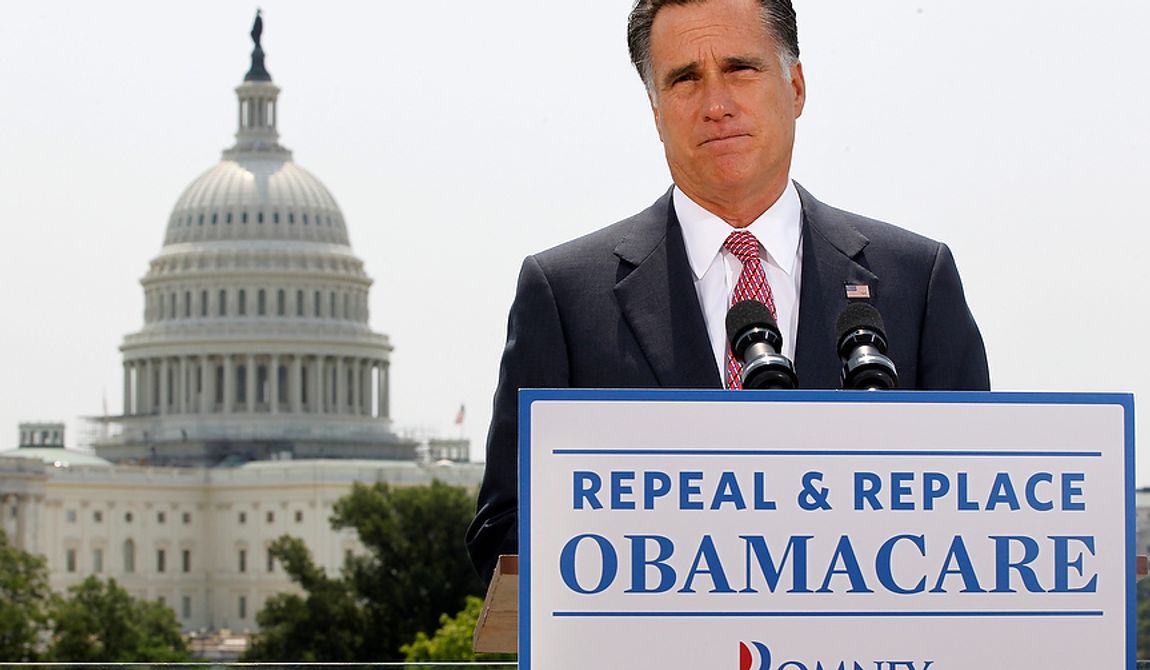
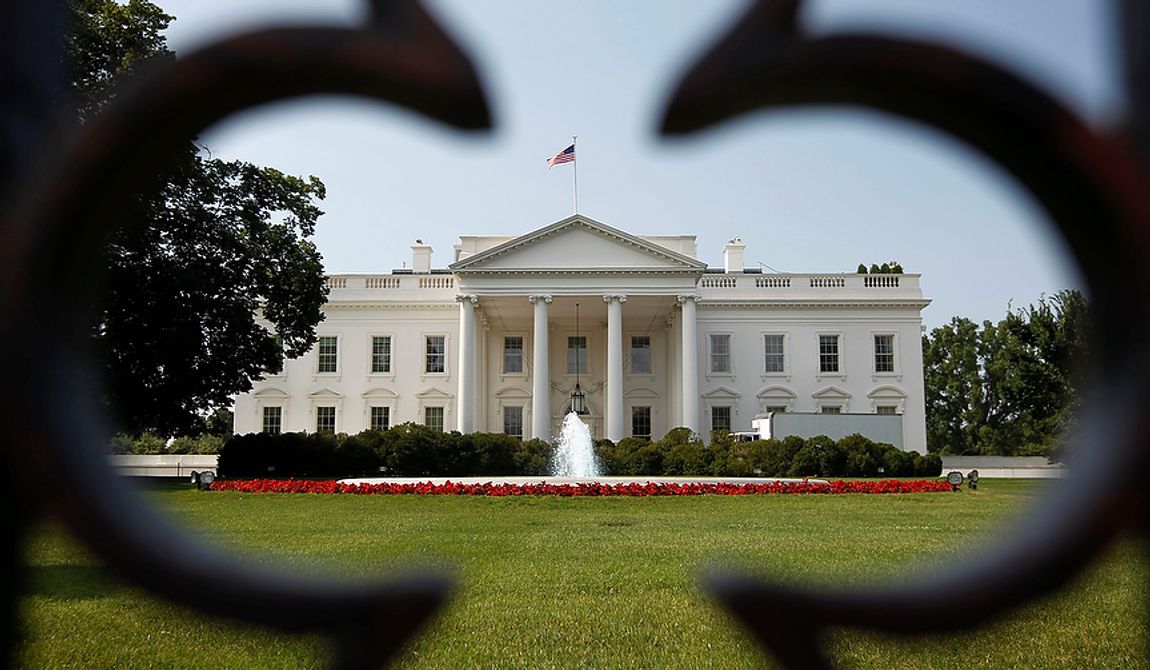
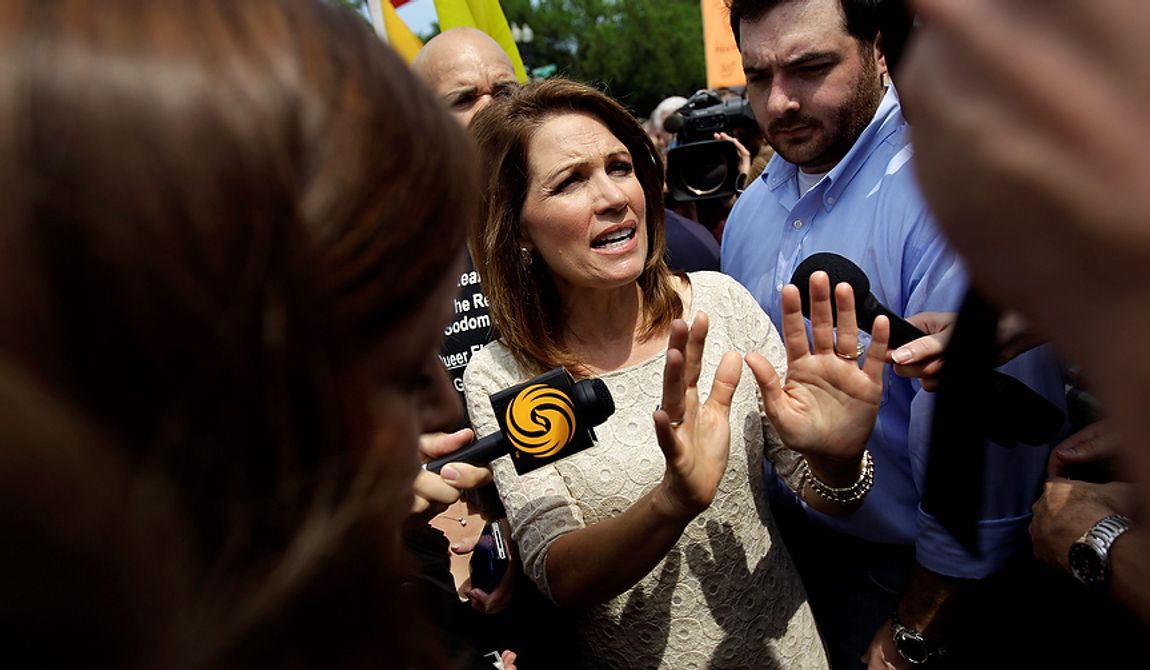
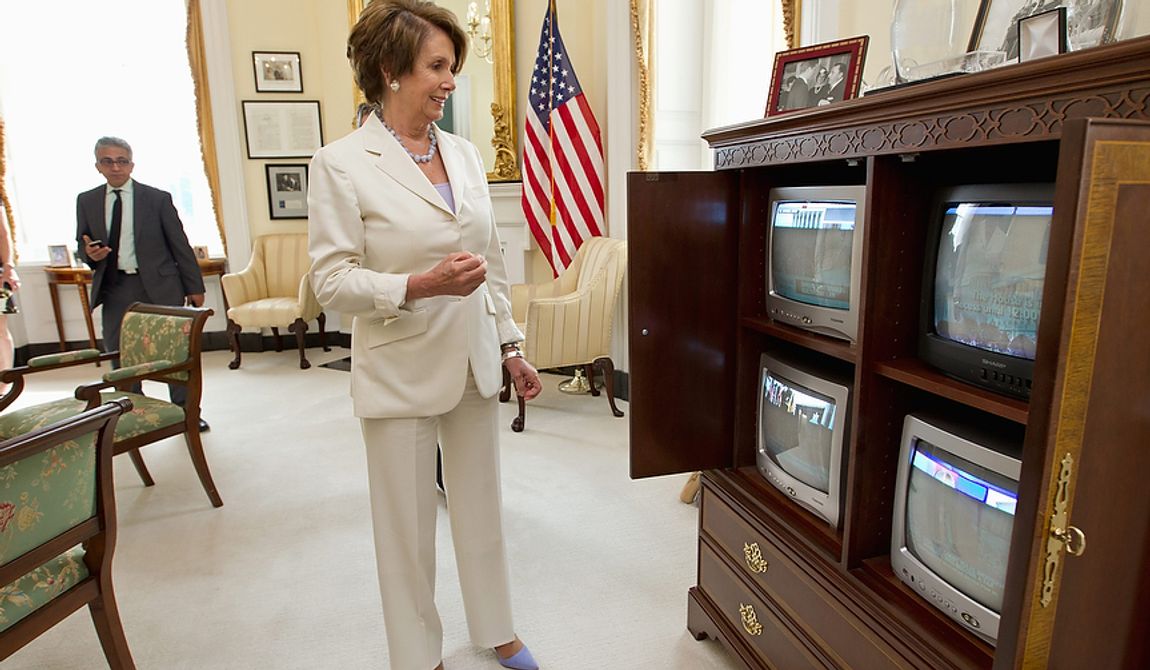

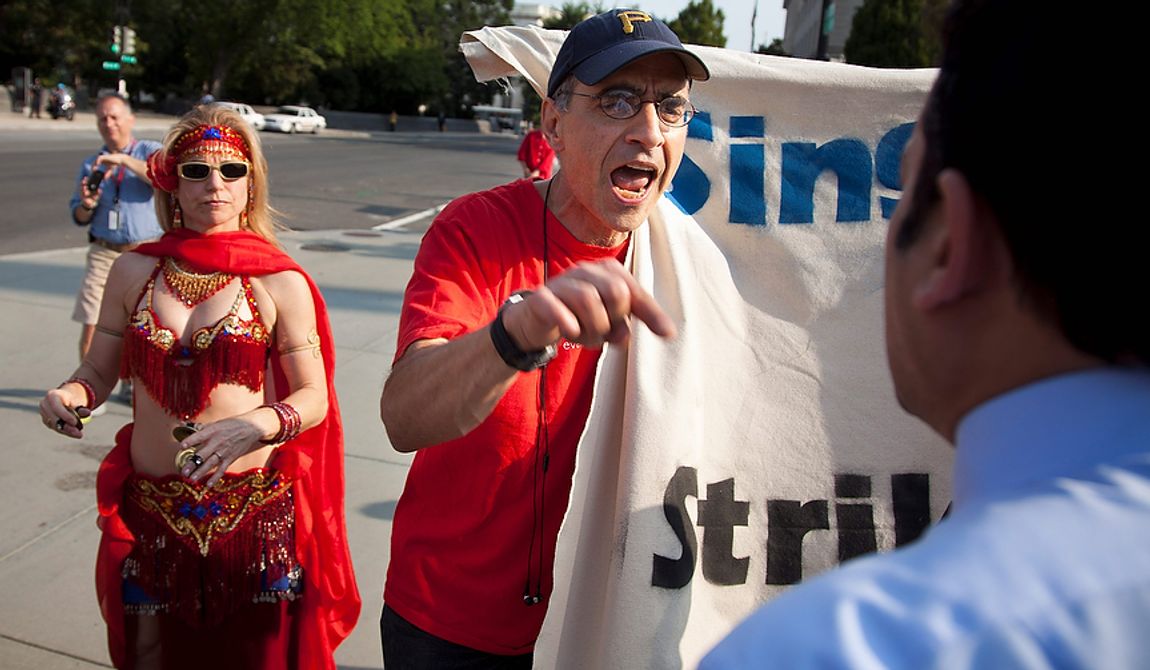
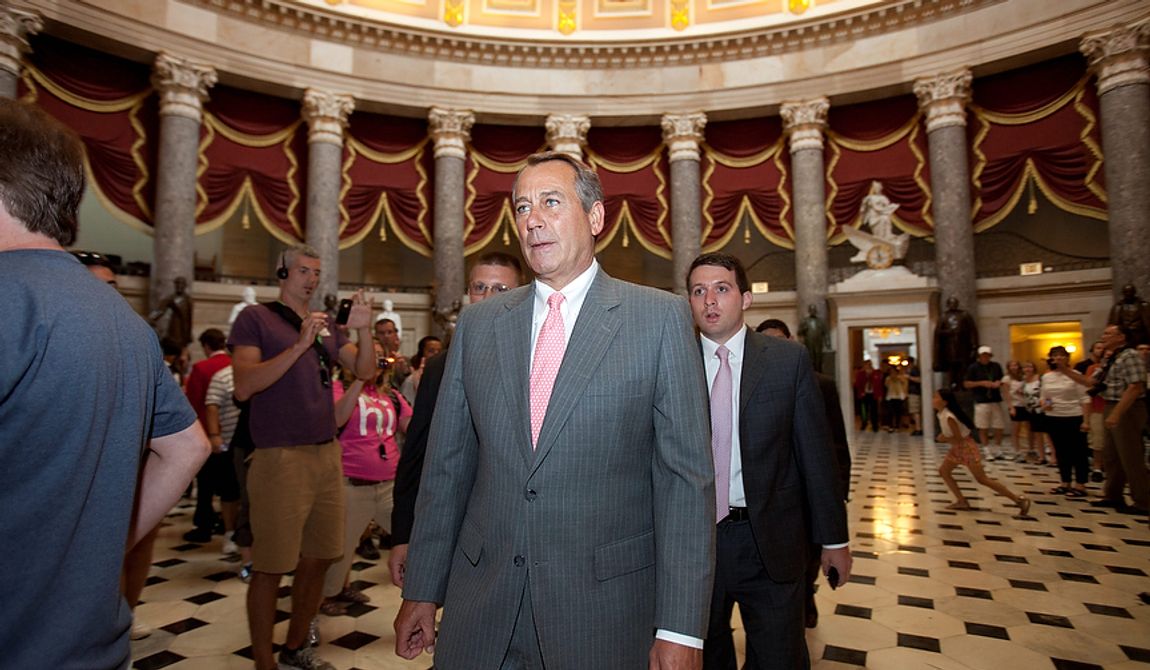
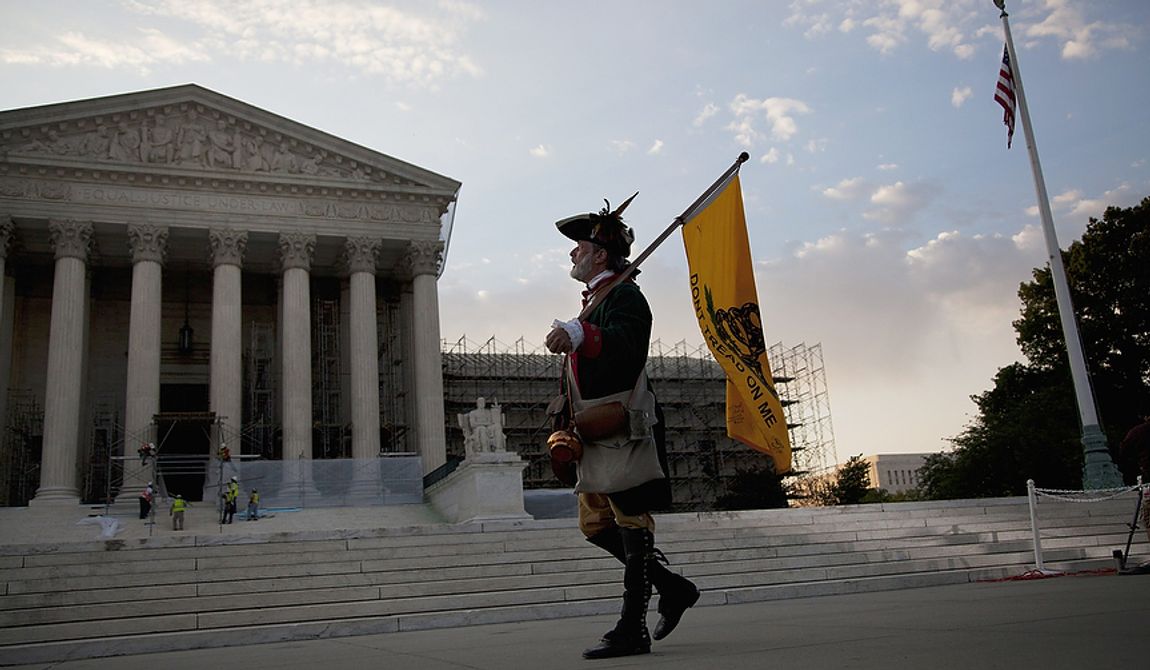
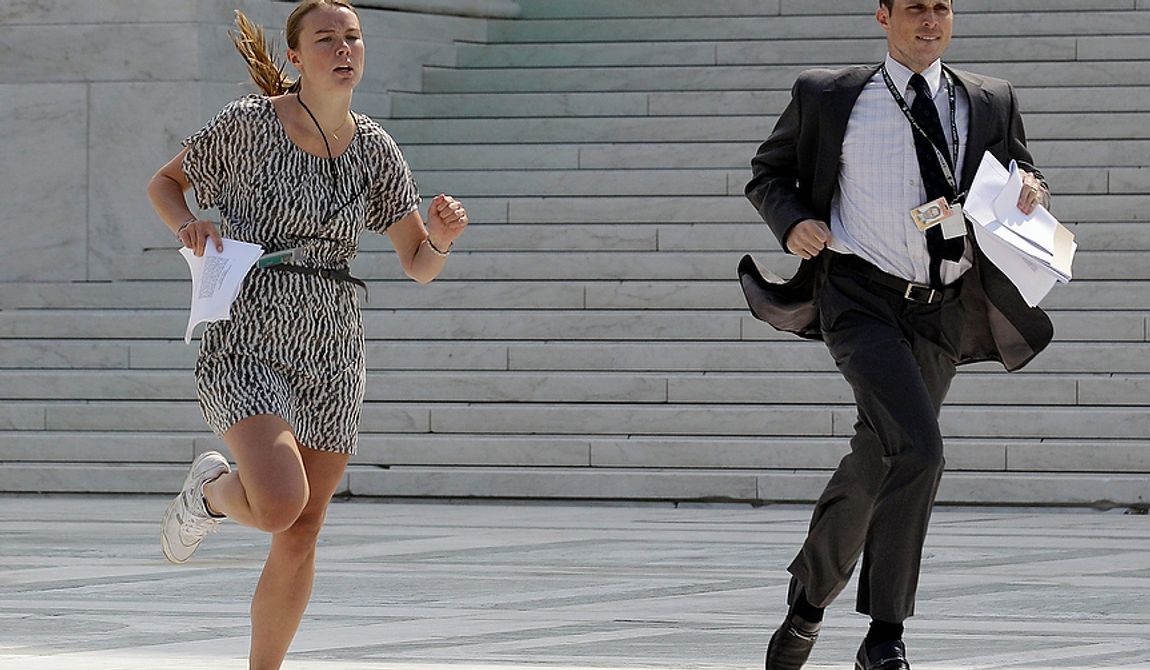
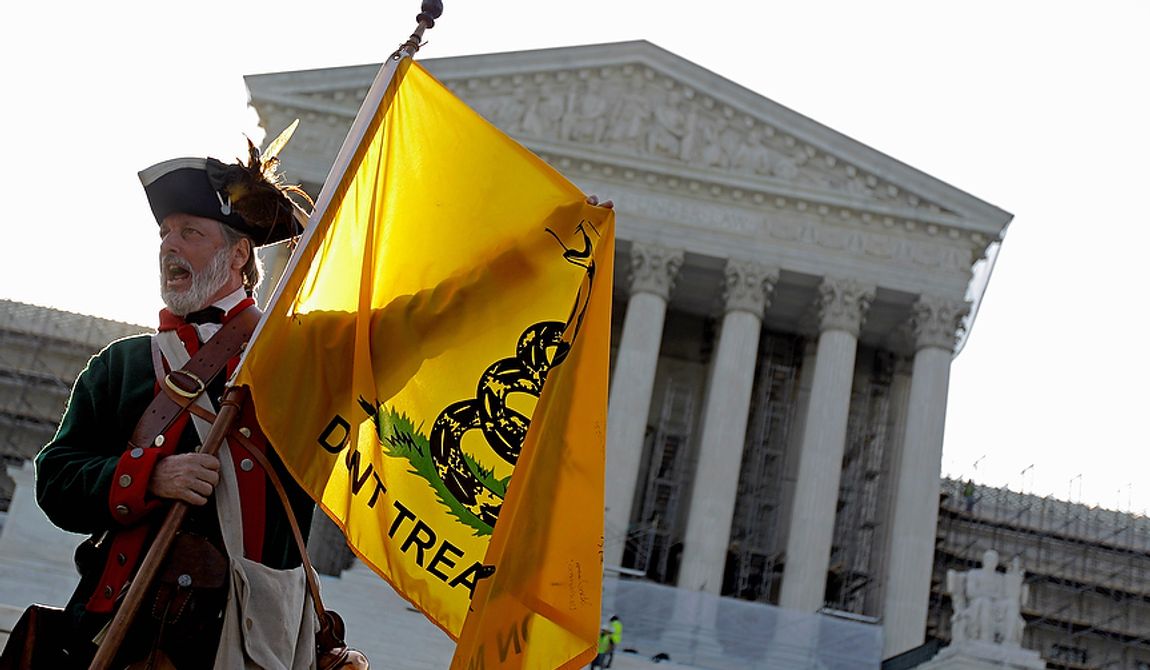

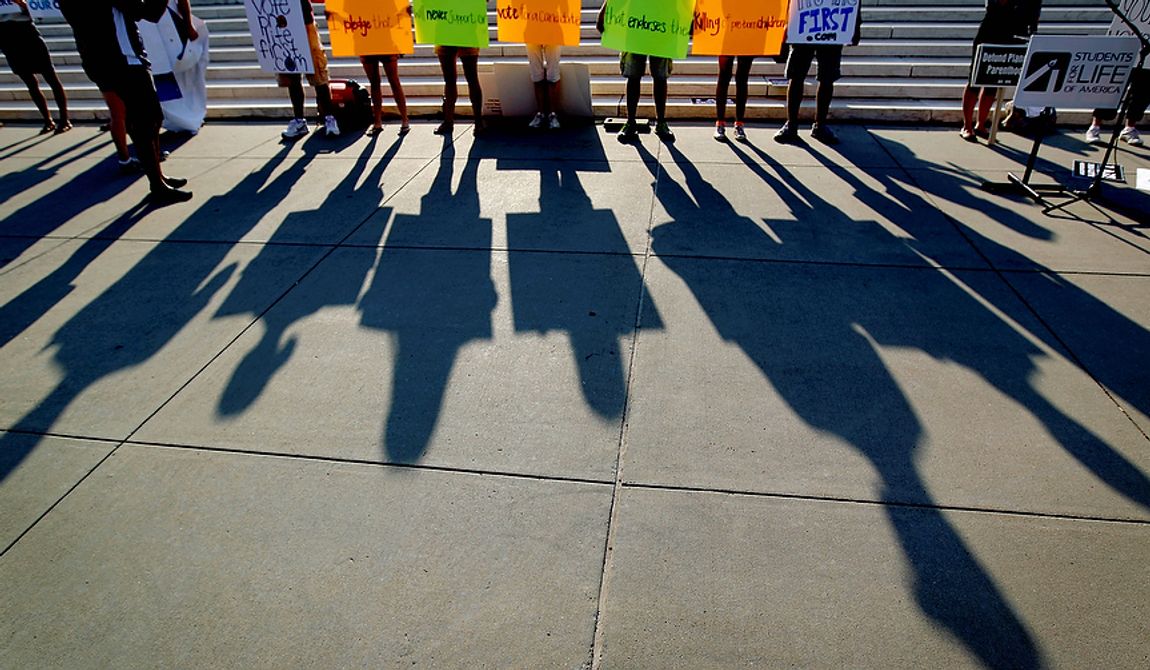


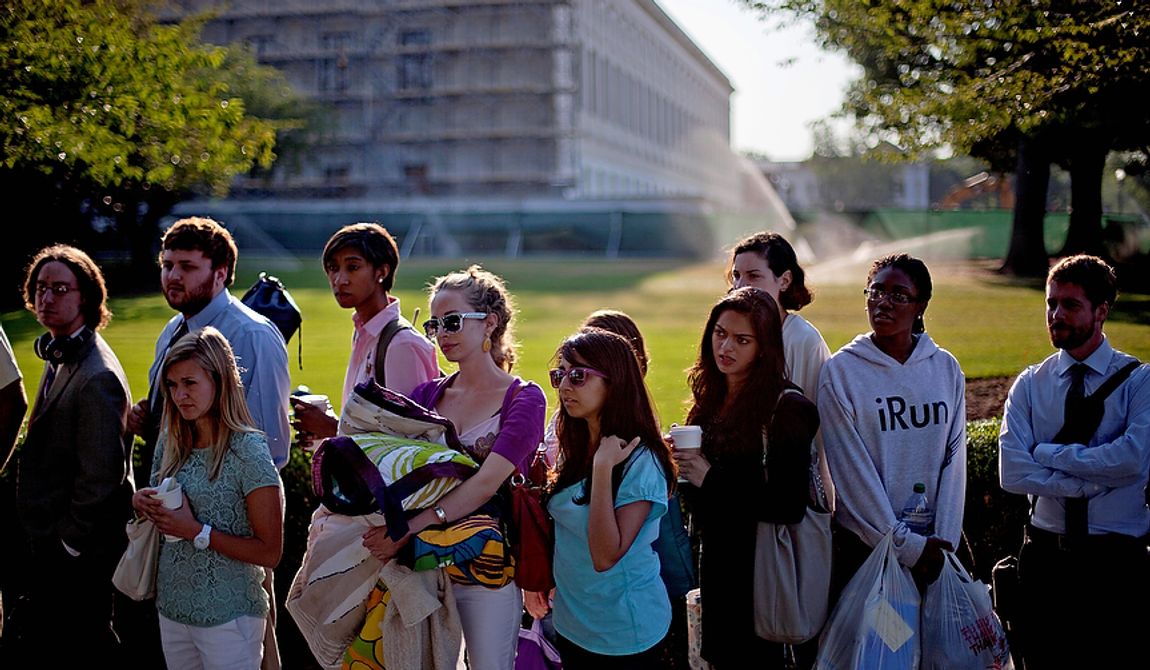




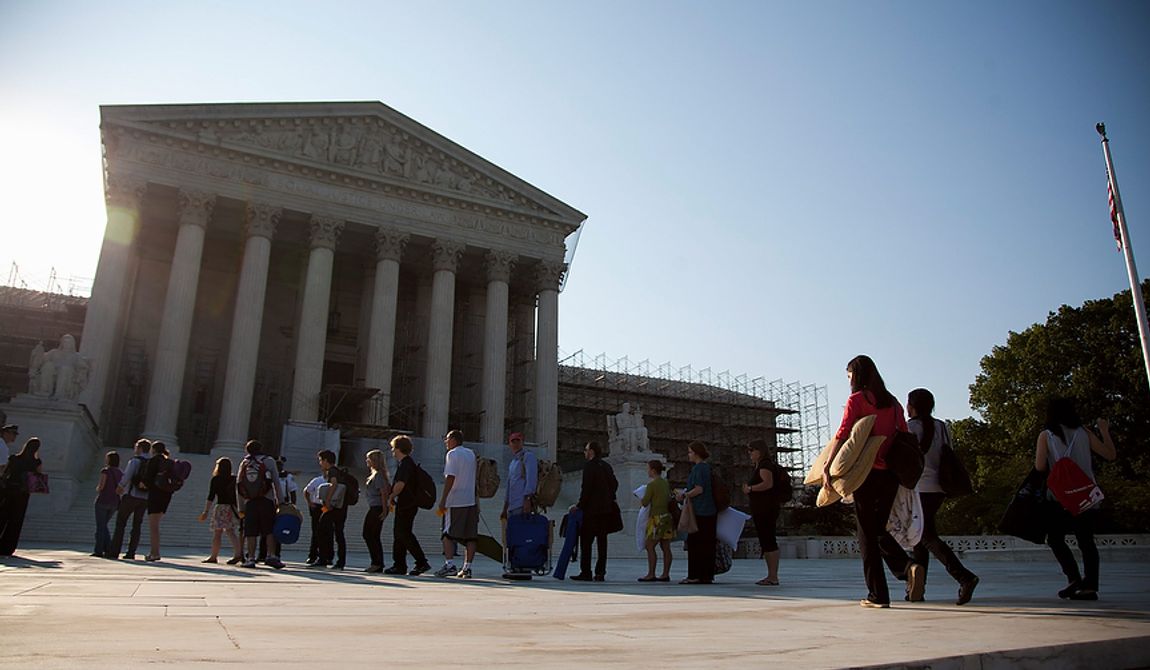
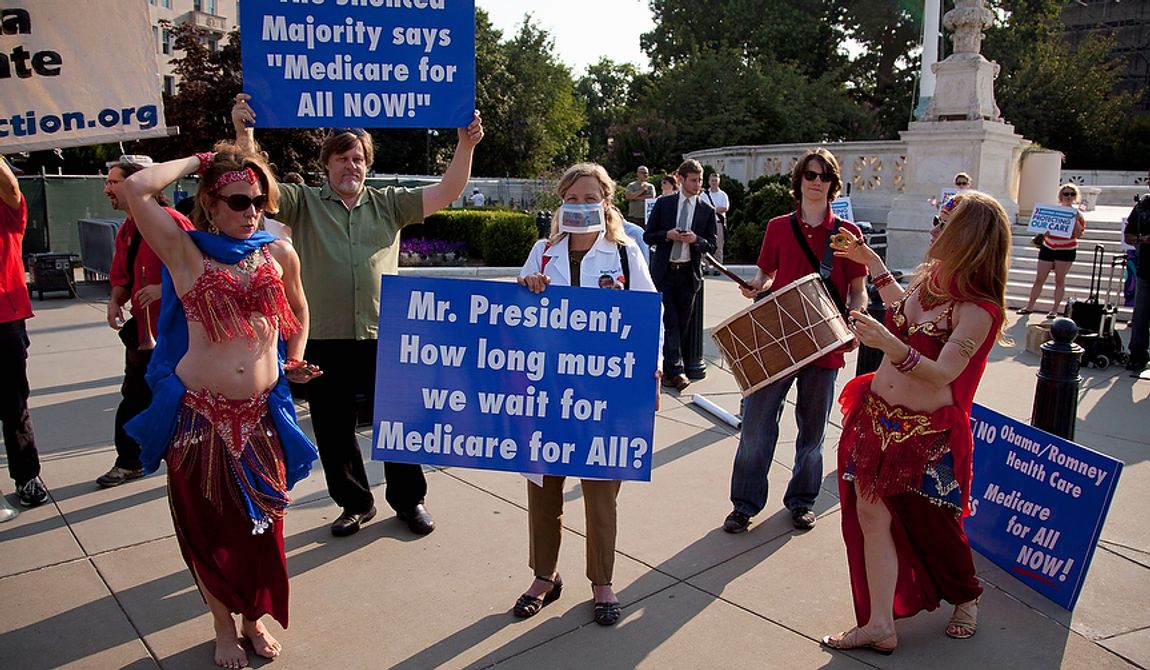

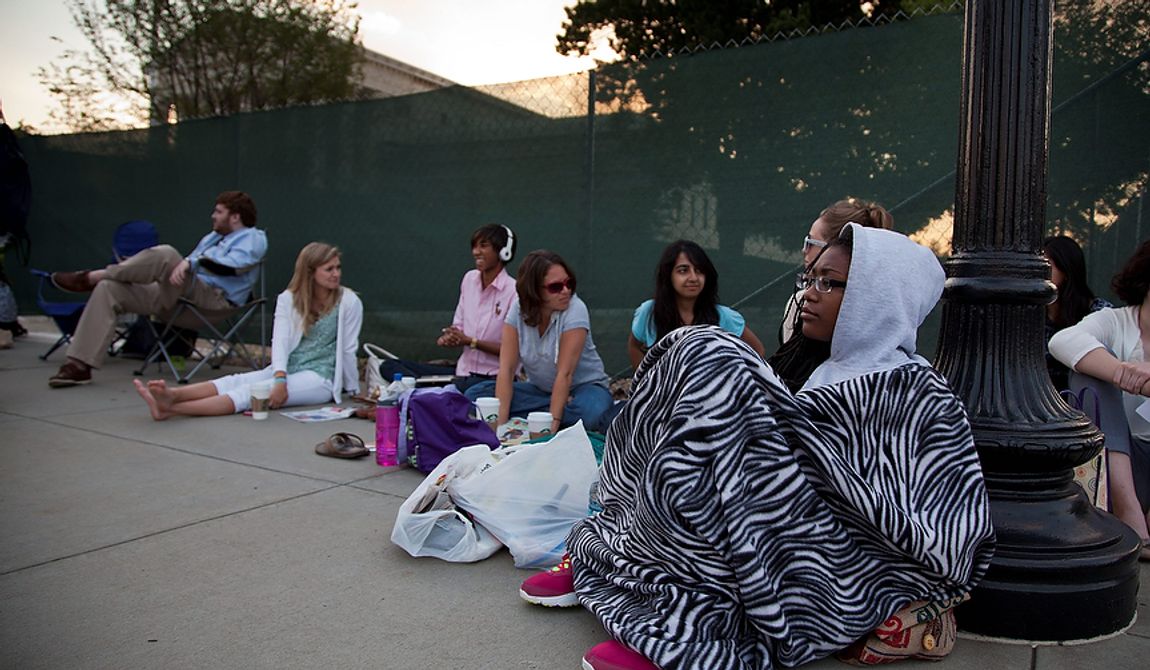
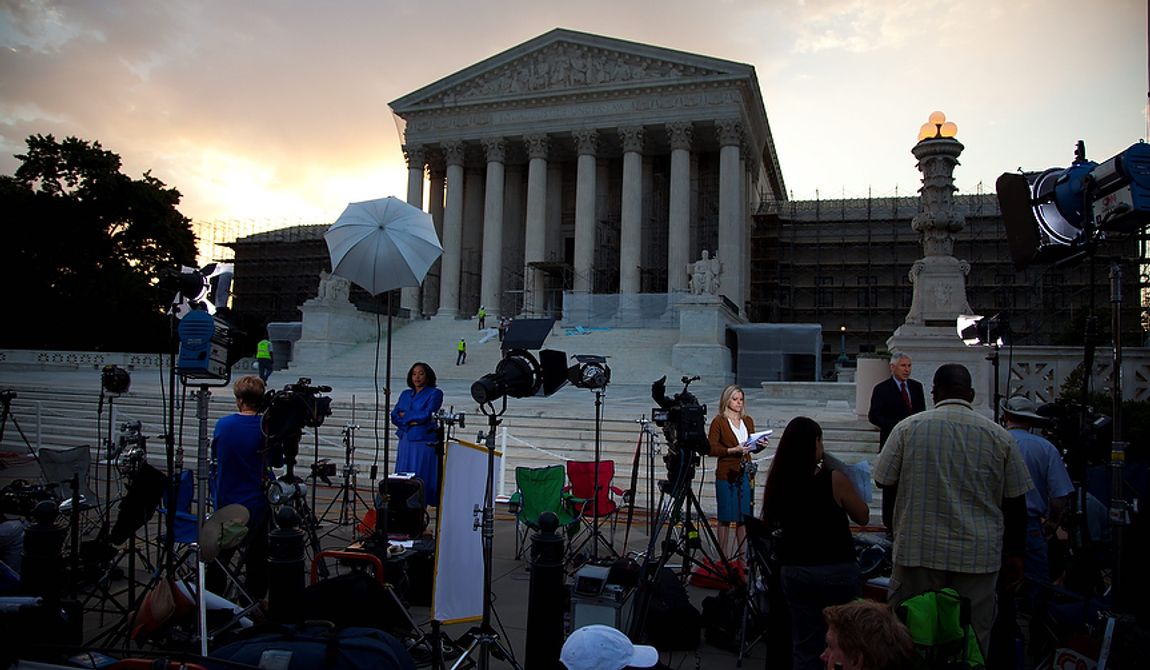



Please read our comment policy before commenting.